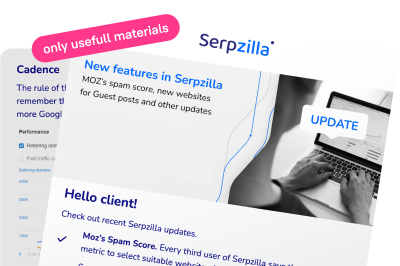Text content can also serve as a tool for promoting your website, but it must meet a number of criteria.
Volume
Search engines favor large texts. If your product description page has at least 300 words, and a service or article page has at least 1000 words, search engines consider this a positive factor.
Practical Usefulness
It’s important that the text is filled with useful information — padding the volume with “fluff” won’t work. The most effective way to make the text useful is to construct it in a way that answers the most pressing questions a user might have. For example, if it’s about a product, talk about its purpose, materials, pros and cons compared to alternatives.
Direct Inclusions
It’s also best to add direct occurrences of keywords to the text and titles. It is generally believed that precise formulations, rather than diluted or modified phrases, provide more effective promotion.
Formatting
To make your text appear more often in so-called quick answers, format it appropriately. For example, add more tables, charts, and “question-answer” blocks. Although this does not directly affect SEO success, indirectly formatting can contribute to the growth of site positions and traffic volumes.
E-E-A-T
For promotion in Google, it’s essential that the text takes into account E-E-A-T factors (Experience, Expertise, Authoritativeness, Trustworthiness). For instance, add examples of practical use of your products, reviews of provided services, quote experts and authoritative sources. If possible, provide links to studies. For online stores, it’s important to include comprehensive information about costs, payment options, and delivery. The presence of documents, photos, and certificates on the site also improves E-E-A-T factors.
Thematic LSI (Latent Semantic Indexing) Phrases
In each theme, there are certain phrases that indicate the text belongs to it and has a certain level of expertise. Using these improves the search engines’ algorithms’ attitude towards the site — so analyze which words and phrases should be actively used on the pages of your resource.
Optimization for Google
There may be situations where a text optimized with a focus on promotion in one search engine may be ineffective in another. In such cases, it might be logical to create different pages, one of which would be promoted in Google, and the next in other search engines. Sometimes it makes sense to wait — it is quite possible that over time the effectiveness of promotion in search engines will even out.



